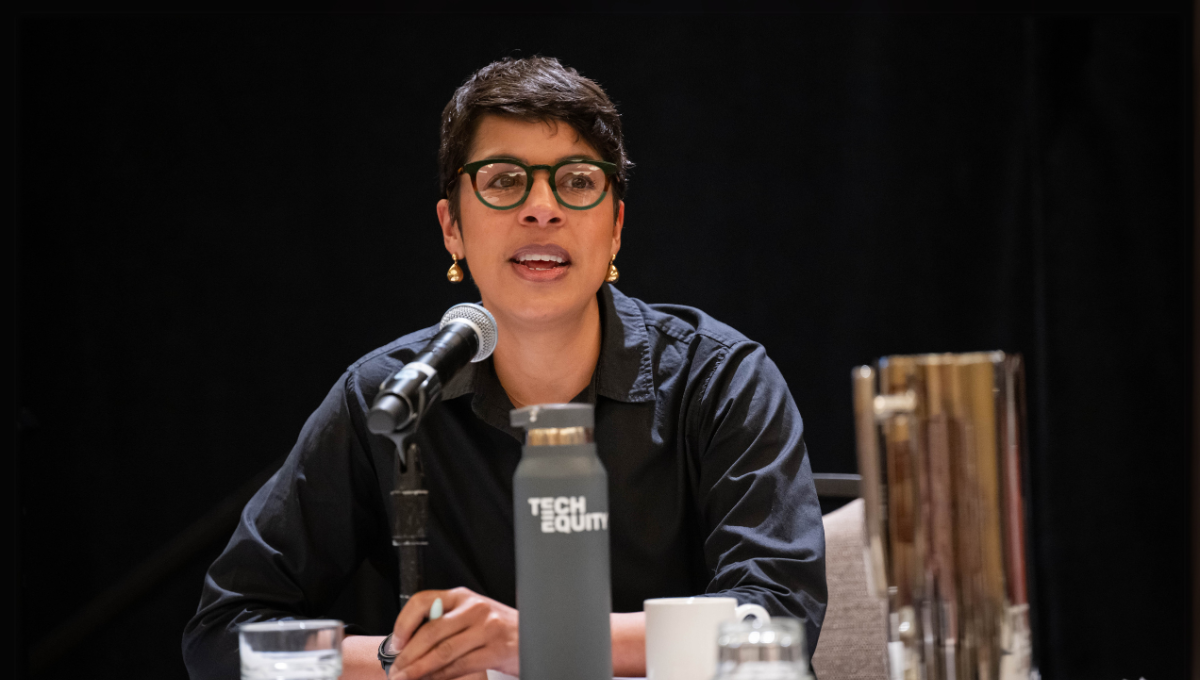2024 in Review: A Letter from Catherine Bracy

In 2024, the buzz around AI has morphed into alarm bells. You can tell just from the way companies are changing how they talk about it. Whenever I drive into San Francisco, the billboards accosting drivers on the Bay Bridge are singing a different tune than they were mere months ago. They have slogans like “Make AI Work for Humans” and “Human-Centered AI” in an attempt to counteract the changing tide, which is that people are getting less excited and more concerned about AI’s role in their lives.
It makes sense. More and more, people are getting wary of AI and what it means for their work, housing, healthcare, and more. We saw that in the way contract workers speak about the algorithms they’re training, the tools that monitor their productivity—and that they fear will ultimately replace them. We’ve seen it in the way that landlords are using algorithmic tenant screening tools to decide whether or not an applicant can rent with them, often without the applicant even knowing.
2024 was about setting the table—and ensuring that workers, renters, and other impacted people have a seat at it.
Advocates in California, across the country, and around the world have been responding to AI’s growing presence in daily life, springing into action to chart a new course for AI. Conferences from Sacramento to Mexico City grappled with the question: how can AI be used as a force for collective prosperity, rather than another wedge to widen the gap between the haves and have-nots?
While federal regulation stalled, California lawmakers introduced a flurry of bills, informed by experts and advocates on how AI impacts daily life. Using our Guiding Policy Principles for Responsible AI, we urged legislators to focus on the impacts of their policies on people, advocating for standards that prevent AI-driven discrimination in automated discrimination systems, both public and private.
California may be AI’s backyard, but we know that its reach extends far beyond our borders. For that reason, we worked with national and international coalitions to co-create strategies to shape AI’s impact on workers and renters around the world. Our AI Working Group regularly brings together more than 40 labor, civil society, privacy, and consumer protection groups. Our international relationships enable us to craft California policy with a global lens—and to support worker-led campaigns around the world.
2024 was about setting the table—and ensuring that workers, renters, and other impacted people have a seat at it. We founded a tech worker roundtable to make sure they could share their voices and experiences and hear firsthand how the changing tech landscape is impacting their jobs and lives.
In 2025, we’re harnessing all this energy and channeling it into a coordinated, global movement that puts people first. We’re focusing on shining a light on the workers powering AI and the workers working under the algorithm’s gaze. We’re exploring tech’s impact on renters and how we can utilize public data to rebalance the scales between renters and landlords. We’re establishing much-needed regulatory standards for AI and automated decision-making, so these critical decisions about people’s lives can be made with people’s well-being front and center.
The year ahead will not be an easy one. The national and global landscape is becoming more daunting by the day. But for every setback we encounter, there is another worker, another renter, another person willing to speak up against the inequities they face. There is another coalition of advocates ready to pull every lever of power available to us to shift the tide of the tech industry toward collective prosperity. If enough of us want change, we can make it happen despite the obstacles ahead of us. I’m grateful to be working with so many people fiercely committed to making that change. Let’s do this.

Catherine Bracy, Founder and CEO of TechEquity
